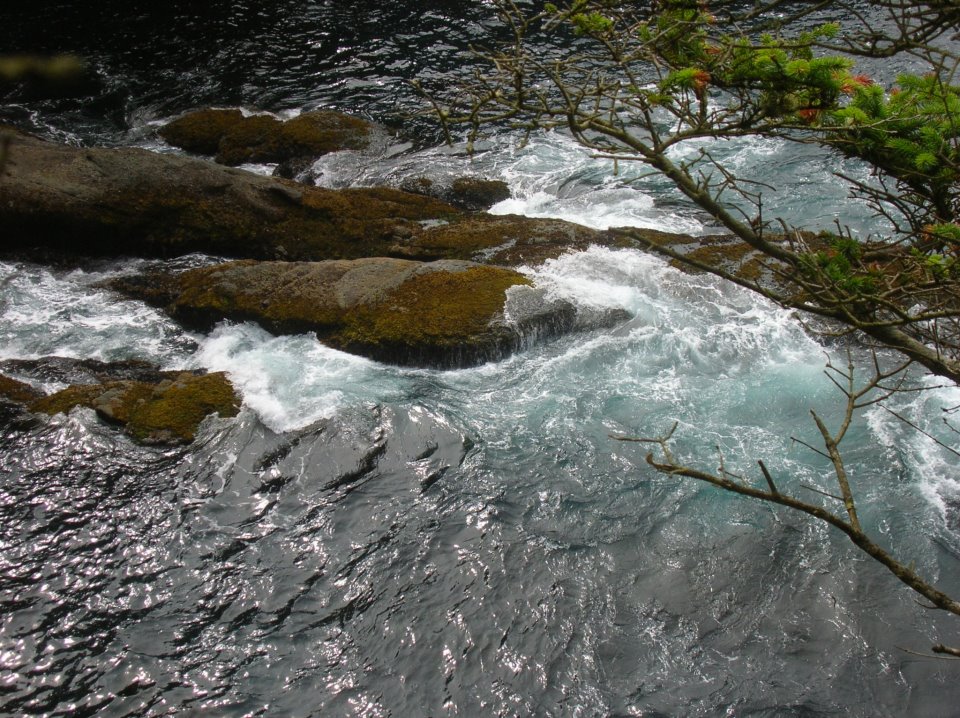a literary journal published by the Black Earth Institute dedicated to re-forging the links between art and spirit, earth and society

BREAKUP, DEER CREEK
What begins with the sharp
report of ice colliding
seems a train rumbling
if freights traversed
currents buoyed by a whole
watershed of snow.
No two slabs alike
this confluence of crystal
and winter driven
by a riven river
severing cottonwood
and redbud at the root.
Some chunks are wide
as tiny islands you
could ride as far
downstream as imagination
allows before dissolving,
a carpet magic
in its vanishing. The sense
you’ve seen this all
before, long ago,
from windows of a home
emptied when the last
of a generation passed.
A tree you climbed
with abandon beside
the channel choked
with its own thaw,
memories themselves melting,
already, beneath our feet.
***
SHUZENJI
The body is the body of the Buddha.
Like ice and water, the one is always in the other. ~ Sam Hamill, After Hakuin
Geologists account for this mountain
differently than locals
who brave the cold
bathing naked torsos
in healing springs at the heart
of town. They say where
a pilgrim struck stone
with his staff long ago
water still flows
steaming from magma deep
down, cooled in pools before
the most stoic can stand it.
In a bare room built on stilts
above the river we bed down
on taut tatami mats.
The stream keeps repeating
a mantra of water passing
like memory’s voice
beneath each dream.
Up the road an imperial ryokan
where ailing emperors stayed
still hosts Noh plays
intoning in ancient tremolo
some half remembered fall
from grace: whatever wish brought us
to this remote place, hope
to be made whole or at least
as close to love as our bodies
come, to be woken
as ice fractures stone.
***
FLOODPLAIN
Who’s to say where outer
leaves off and inner
begins—landscape’s
oil on canvas
blood on bone
Van Gogh’s impassioned
rows of olive trees twisted
with emotion, signature
sleight of hand, O’Keefe’s
viscous gullies. Hummingbirds
buzz the feeder’s ruby globe,
nectar laced with imitation
vanilla. What’s natural?
The riddle gives way
to sweetness. Birds hover
on incessant wings,
the illusion of stillness
above a floodplain’s flux.
Meadows turn riverbed
when rising water topples
sycamores and litters pasture
with flotsam and seed.
Sand and sediment scatter
fragmentary as memory.
Japanese beetles
vanquish wild roses:
one savage wave
of glistening iridescence.
***
TOMORROW WILL HAVE AN ISLAND
after William Stafford
Consider how the river thinks
about an island: the moment
current becomes of two
minds, either side, eddies
of hesitation, then
a deepening resolve:
how the island regards
water that carves both
banks to explore another
course: how water, once
divided, desires only
to find itself again.
Author Biography:
Christian Knoeller, Associate Professor of English at Purdue, has published poetry in literary journals regularly for several decades, with recent work appearing in the Evansville Review, Hawai’i Pacific, Iron Horse, South Dakota Review, and Westview. His first collection, Completing the Circle, was awarded the Millennium Prize by Buttonwood Press, and another, Learning to Tell Time, is in progress. He has taught writing, literature, and English Education at the college level for the past 20 years, including creative writing as well as a variety of graduate seminars, most recently Writing in Middle and Secondary School. He was awarded the Jill Barnum Midwestern Heritage Prize in 2007 and has recently been elected the Society’s president of Society for the Study of Midwestern Literature.
©2026 Black Earth Institute. All rights reserved. | ISSN# 2327-784X | Site Admin